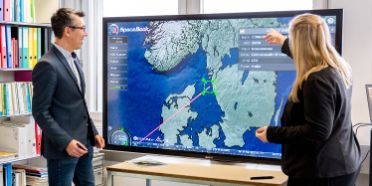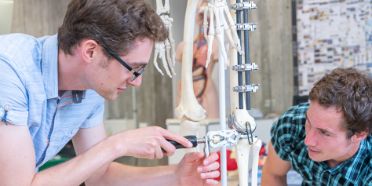Focus areas
Gain in-depth knowledge of software engineering and machine learning. Combining your skills will enable you to realise intelligent applications and data pipelines in all key application fields.
What you will gain with your degree
The degree programme offers an ideal foundation for the fastest-growing job profiles in the context of machine intelligence and software development.
You will learn to design and implement software in a practice-focused setting. From the very first semester, you will have the opportunity to combine these skills with your growing knowledge of machine learning, based on the Living Lab approach. The combination of these core areas opens up a ready, future-proof landscape of career prospects for you upon graduating.
Specialisations
The modular programme allows you to set the direction of your future career path from the midpoint of the course by selecting precisely the specialisations you need. Completing the bachelor’s thesis in your chosen specialisation means you get to implement exciting projects in practice, applying the skills you have acquired along the way.
The specialisations reflect the development in the use of machine intelligence in industry, focussing on the key areas where this technology is deployed. This allows you to add knowledge in machine learning and analytics to the software engineering skills you have already gained, with an eye on the career path you would like to pursue.























